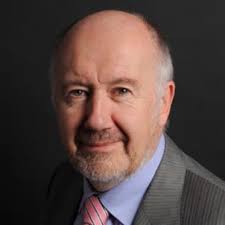Article
Higher Psilocybin Dose Benefits Treatment-Resistant Depression at 3 Weeks
Author(s):
New phase 2 data show a synthetic, proprietary 25 mg dose from COMPASS may fare better for adult patients than a 10 mg dose.
Guy M. Goodwin

A greater-dose psilocybin regimen may be capable of improving treatment-resistant depression, though it be associated with adverse event risks, according to new data.
In findings from the new COMPASS Pathfinder-funded phase 2 trial observing 3 psilocybin dose regimens in adults with treatment-resistant depression, a team of US investigators reported that patients administered single-dose 25 mg psilocybin achieved significant improvement in symptom improvement in 3 weeks.
However, the team also observed a high rate of adverse events in all treatment arms, as well as decreased rates of sustained treatment response at 12 weeks. The findings elucidated the need for lengthier assessment into the prospect of monotherapy psilocybin in treatment-resistant depression, while also raising questions into its benefit-risk profile relative to already available therapies in the space.
Led by Prof. Guy M. Goodwin, of COMPASS Pathfinder and the department of psychiatry at University of Oxford, investigators conducted the phase 2 study to identify efficacious doses of psilocybin for adults with treatment-resistant depression, as well as assess the safety of a synthetic, proprietary psilocybin formulation when administered with psychological support. Psilocybin’s history in consideration for psychiatric use was started by its evidenced benefit in patients with life-threatening cancer.
Psilocybin is a tryptamine alkaloid found in several species of psilocybe mushrooms,” Goodwin and colleagues wrote. “Amelioration of symptomatic depression in pilot studies of major depressive disorder, including those that compared psilocybin with escitalopram and that investigated its use in treatment-resistant depression,has suggested therapeutic potential for this agent.”
The team conducted a double-blind, dose-finding, parallel-group randomized clinical trial including COMPASS’ proprietary COMP360 formulation. Eligible participants were outpatient adults ≥18 years old with DSM-5 criteria for a single or recurrent episode of major depressive disorder without psychotic features, who were then diagnosed with treatment-resistant depression without response to 2-4 adequate trials of treatment.
Participant recruitment and analysis spanned 22 sites in 10 countries across North America and Europe from March 2019 to September 2021.
Patients were randomized to a single dose of either 25 mg, 10 mg or 1 mg psilocybin, with 1 mg doses serving as the trial control. They were also provided psychological support during the trial period.
Investigators sought a primary endpoint of change in total Montgomery-Asberg Depression Rating Scale (MADRS) scores from baseline to week 3. MADRS is a 60-item scale, with greater scores indicating more severe depression. The team also sought secondary endpoints of ≥50% MADRS decrease from baseline to week 3 indicating treatment response, remission at week 3 (per MADRS ≤10), and sustained treatment response at 12 weeks.
Goodwin and colleagues enrolled and randomized 233 patients to 25 mg (n = 79), 10 mg (n = 75) and 1 mg (n = 79) doses. Mean patient age was 39.8 years old; 52% were female, and 92% were White. Mean lifetime depressive episodes per patient were 6.9 at baseline; 86% of all patients reported a ≥1 year duration of their current depressive episode. Approximately two-thirds of all patients were receiving antidepressants at screening.
The team reported a least-squares mean MADRS total score change of -12.0 points at week 3 among patients administered the 25 mg psilocybin dose, versus -7.9 points among the 10 mg arm and -5.4 mg in the 1 mg arm.
The -6.6 difference in mean MADRS score between the 25 mg arm and control arm was considered statistically significant at 3 weeks (95% CI, -10.2 to -2.9; P <.001). The -2.5 difference between the 10 mg and control arm was not significant (95% CI, -6.2 to 1.2; P = .18).
“The nonsignificant finding for the comparison between the 10-mg group and the 1-mg group terminated significance testing on the basis of the prespecified hierarchical test procedure, and all the subsequent key secondary efficacy end points are considered to be not significantly different between the 25-mg group or the 10-mg group and the 1-mg group,” investigators wrote.
More than one-thirds (37%) of patients in the 25 mg arm achieved treatment response at week 3, versus 19% and 18% in the 10 mg and control arms, respectively. Incidence remission was additionally substantially greater in the 25 mg arm (29%) versus the 10 mg (9%) and control arms (8%).
Approximately 1 in 5 (20%) patients in the 25 mg arm achieved sustained response at week 12—a two-fold greater likelihood than that observed in the control arm (odds ratio [OR], 2.2; 95% CI, 0.9 - 5.4).
Regarding safety, investigators observed ≥72% prevalence of adverse events in each of the 3 treatment arms. The most commonly reported treatment-onset adverse events in the 25 mg arm included headache (24%), nausea (22%), dizziness and fatigue (6%).
The most commonly reported severe adverse events reported in 9% of the 25 mg arm through week 3 included suicidal ideation and intentional self-injury—2 patients for each event. Another 11 (14%) of patients reported worsening suicidal state from baseline to week 3 after 25 mg psilocybin treatment.
Goodwin and colleagues said the phase 2 findings highlighted the “feasibility” of monotherapy psilocybin for ≤12 weeks in this patient population.
“In view of the participants who showed worsening of suicidal state, suicidality demands clinical vigilance in future trials of psilocybin for depression,” they wrote. “The incidences of response and remission at 3 weeks were generally in the same direction as the primary endpoint results; however, the analyses of these end points were ordered in the prespecified hierarchical test procedure after the significance testing had terminated, and no definite conclusions can be drawn from these results.”
Looking ahead, the team called for lengthier and larger clinical trials, with included outcomes comparing psilocybin to current standard-care treatment-resistant depression.
The study, “Single-Dose Psilocybin for a Treatment-Resistant Episode of Major Depression,” was published online in The New England Journal of Medicine.




